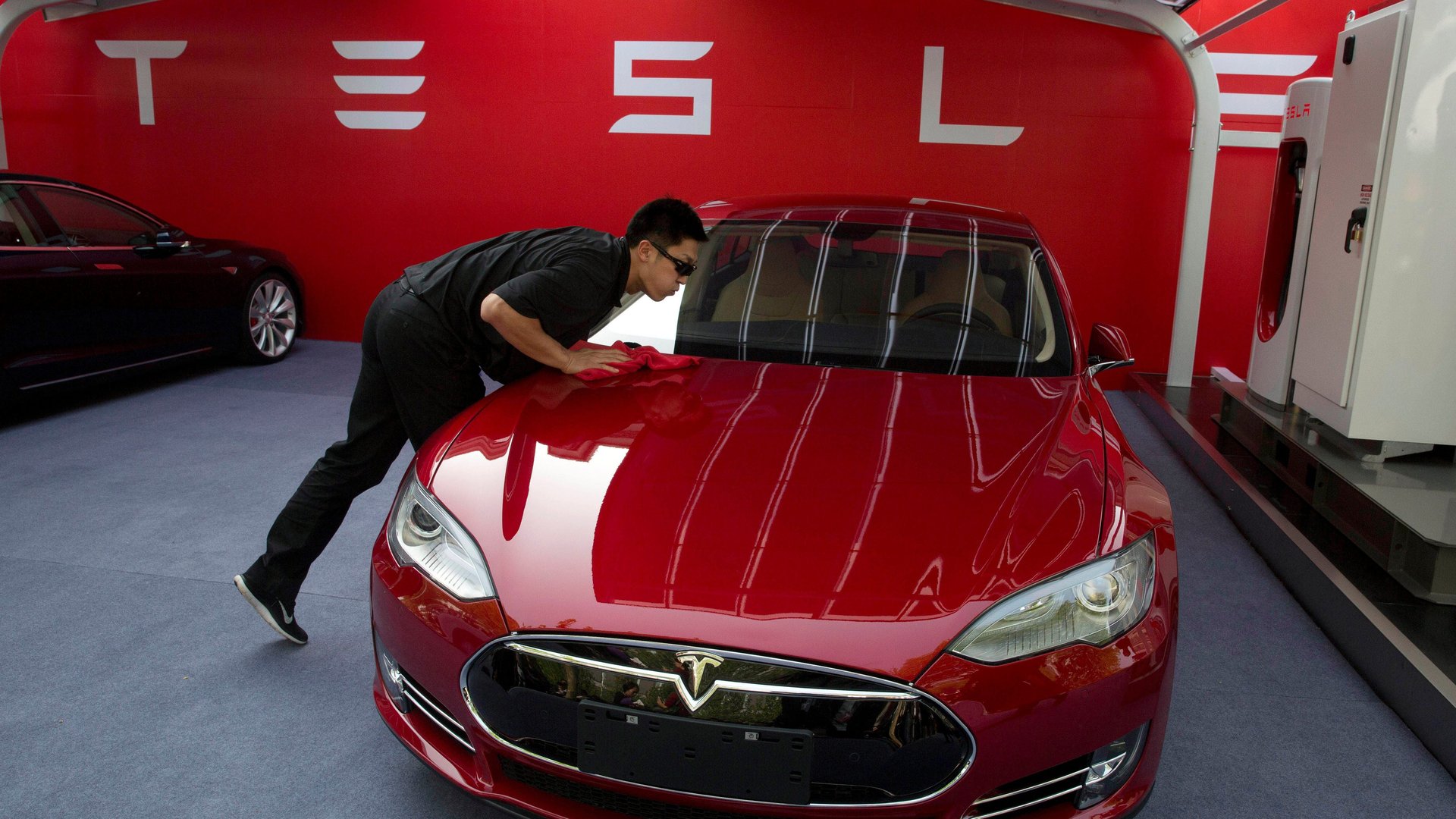China just rolled out the welcome mat for Tesla
For a long time, there were only two options for foreign car makers who wanted to sell in China —pay a 25% import tax on your cars or partner with a local manufacturer entitled to an equal or controlling stake in your joint venture. Now China’s overhauling its investment rules for foreign car makers.


For a long time, there were only two options for foreign car makers who wanted to sell in China —pay a 25% import tax on your cars or partner with a local manufacturer entitled to an equal or controlling stake in your joint venture. Now China’s overhauling its investment rules for foreign car makers.
China’s state policy planner, the National Development and Reform Commission (NDRC), announced that that the country will scrap foreign investment limits (link in Chinese) for car manufacturing, beginning with new energy vehicles this year, a category that includes both hybrid and fully battery-run vehicles.
One immediate beneficiary of the rule change might be a company that’s been trying to set up a manufacturing hub in China for several months now—and is already quite popular there despite the hefty duty its cars attract. While the timeline from the NDRC doesn’t mention Tesla, and any foreign electric vehicle maker can potentially benefit, the announcement comes after Tesla has several times in recent months expressed its interest in manufacturing in China, the company’s second-largest revenue generator. Its founder Elon Musk last year suggested that could happen within another three years.
News reports late last year said Tesla was close to a deal for manufacturing hub in the city of Shanghai. With the new announcement in place, the made-in-China Tesla could be exempt from import taxes, making its cars that much more competitive in the price-sensitive country. It’s a much-needed piece of good news for Tesla, which is going through production woes at home.
The commission said that the rules will cover commercial vehicle manufacturing in 2020, and traditional passenger cars in 2022. In five years, the commission said, no foreign car maker will need to have a joint venture, which would sunset a restriction on the industry that has been in place since 1994 (link in Chinese).
The announcement from the NDRC comes after China’s president Xi Jinping last week said the country would “significantly” lower tariffs and ease ownership rules in the automobile industry in a speech at the Boao Forum, Asia’s answer to Davos. Together, the two changes means it’s going to get a lot easier for foreign car makers to make and sell cars in the world’s largest car market.
Today’s news may also provide US president Donald Trump an opportunity to crow that his pressure tactics on China are working—joint-venture rules such as this one have long been seen as a form of protectionism, meant to help local firms get access to foreign technology, and have prompted complaints that China isn’t playing fair.